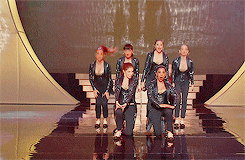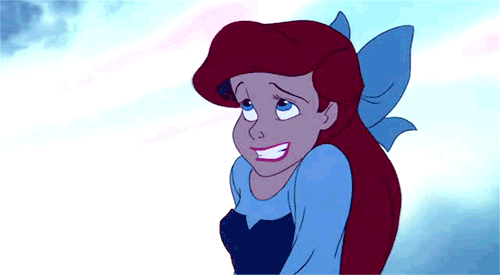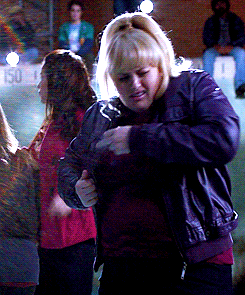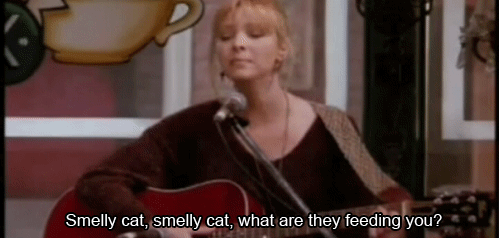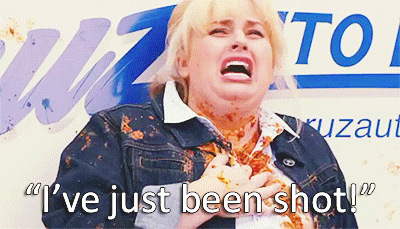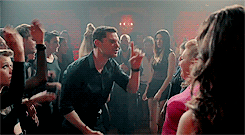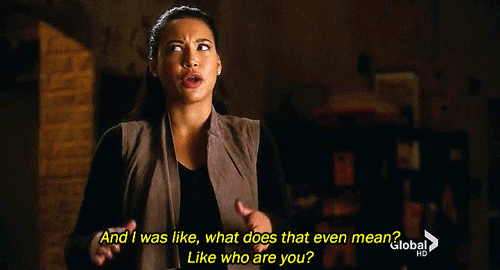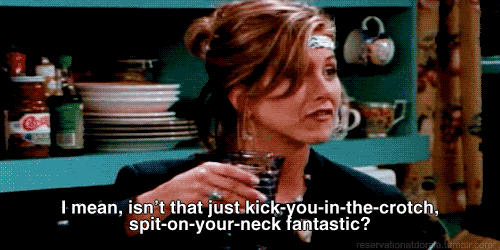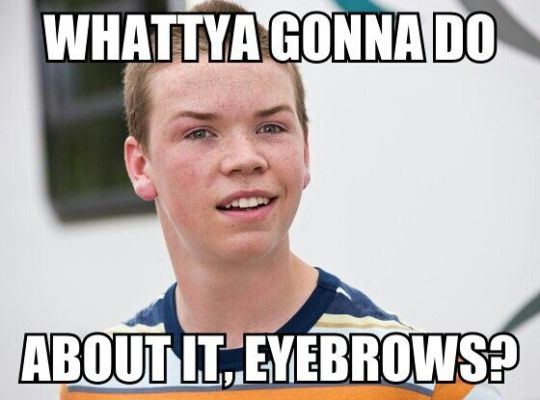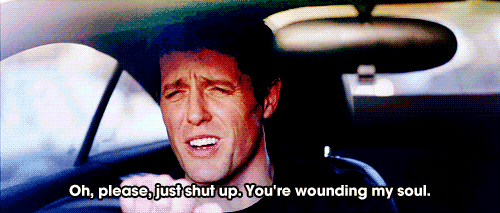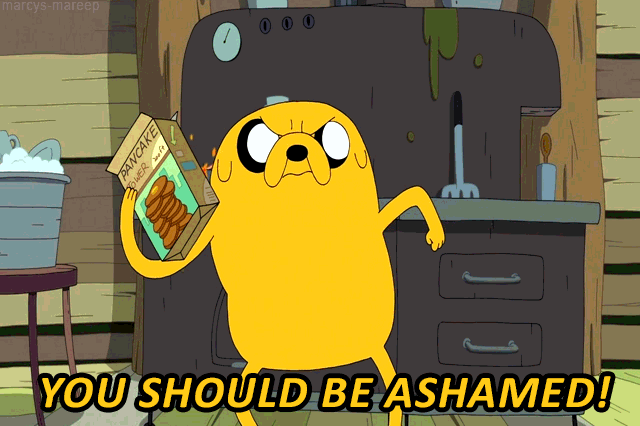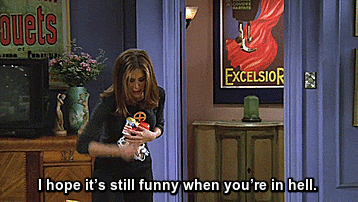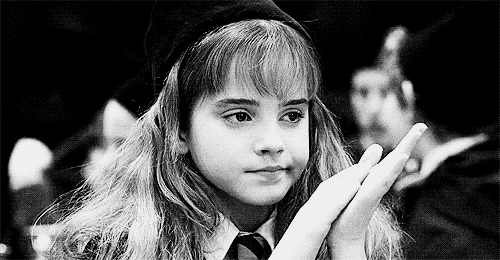The show is based on the article by Jessica Pressler, so it makes sense that the opening scene shows her article being printed, with a voiceover from Anna Delvey insulting us. We're about 30 seconds in, and there's already a lot to unpack. Firstly, Jessica Pressler has been renamed Vivian Kent, as if she is a fictional character. I'm fine with that, especially since the show doesn't claim to be a documentary or 100% accurate, but why do this for Pressler and not for Rachel Williams? Rachel Williams was not involved in the project, and the actress playing her has said she intentionally did not learn much about Williams because she wasn't attempting to portray the real her. So why use her real name? If it's in the interests of accuracy, and using information in the public sphere and so on, why change Pressler's name? Pick a lane. I'm mad about this, because this show has turned Rachel Williams into a target, which she doesn't deserve.
Opening with Delvey insulting us, the viewers, is a solid start to her characterisation throughout the rest of the show.
The printed newspaper fades into social media, showing comments and likes and whatnot. Unlike Delvey being insulting, this isn't really followed up as a theme. In some ways it is, with Vivian Kent using Instagram to track Delvey down, and part of Delvey's motivation apparently being how she looks in Instagram photos, but, from this opening, I'd have expected Instagram to play a role in either her original motivation to start scamming people, or to help her track people down and trick them, or even as part of her scam, to convince people she's richer and more well-known than she is. That just isn't followed up on. Personally, I don't think Delvey needed modern technology, especially since a lot of her scams relied on it being unavailable, like claiming there were problems getting money from her trust fund into the US. She did a lot of the old-fashioned stuff, like paper-hanging and forging wire transfer confirmations. The show portrays her as fundamentally millennial, but personally, I think she'd have conducted the exact same scams in the 1920s, and probably would have had an easier time doing so in some ways.
Delvey's voiceover continues, encouraging us to be like her. The show claims it isn't actually trying to encourage people to be like Delvey, and it's possible they intended this voiceover to be so insulting that everyone immediately decides they don't want to be like her. If so, I don't think that message is clear, especially with the sympathetic points made in Delvey's defence later on.
We segue into Delvey's arrest and the reactions of various characters, some based on real people and some more inspired by the types of people Delvey scammed. One of those based on a real person, Kacy Duke, says that Delvey's arrest is "karma" and "the universe corrects all wrongs." Later, we see her shouting at Rachel Williams, insisting that it's morally wrong for Williams to have been involved in Delvey's arrest. This seems hypocritical. She agrees that Delvey should be in prison for scamming them (and others), but she also thinks it's a betrayal for Williams to have played a role in that? Again, pick a lane. Delvey made it very clear that she was not Williams' friends when she put her in a dangerous situation and forced her to spend money she didn't have and risk her career to get out of it, so Williams' clearly wasn't betraying a friend when she helped get her arrested. On the other hand, if Duke thinks Delvey was actually their friend, how does she justify the scamming?
I need to be very clear here that these are the viewpoints of fictional characters, despite those characters sharing names with real people. The real Kacy and Rachel were not close friends and didn't hang out together as portrayed in the show, so they wouldn't have been having this conversation, and I have no idea if Kacy Duke held any of the opinions she's given in the show. Personally, I suspect the show is just using the character as a convenient mouthpiece.
Two of Delvey's other victims insist that the article only appeared in a small paper and that no one will pick it up. This is the very first piece of information we get about the paper the article is printed in, so the obvious interpretation is to take it at face value. I think the more likely interpretation is that they're engaging in wishful thinking, but that's not clear at this point. I'm not clear if they're talking about Kent's article, which is the one we were just shown, or the article which inspired Kent. The very next scene is actually about Kent proposing her article, which is not written until the last third of the show. I can't tell if these scenes follow the first or second article.
Kent gets to work, and the staffers are talking about Trump and Obama in a way that makes it clear Trump has just been elected. Kent has read an article on Delvey - which is not the article we saw being printed earlier, that's the much later article that Kent ends up writing - and wants to write about her because no one knows anything about her, whether she's rich or flat broke or where she came from. Her editor doesn't want her to write the story.
Cut to Delvey's lawyer, arguing that she should be allowed out on bail because she's not a dangerous criminal. I think he's ignoring the fact that she's talked her way into and out of all sorts of places and "borrowed" jets and yachts before now. We, the viewer, don't know that yet, but he does. The lawyer, Todd Spodek, is also based one-to-one on a real person. He hasn't faced the backlash Williams' has, as far as I know, and I don't know if he signed off on the portrayal of him. I think it shows him as good at his job and generally in a positive light, so I feel morally okay with that, even though it's still weird to keep his name the same but change Pressler's.
Overall, I like the lawyer character. He's entirely on Delvey's side, spinning a story to make her sympathetic, but that's literally his job. The US and UK legal system (and others) both share the idea that someone HAS to be on your side, just in case it really is just a coincidence that you look so guilty. Someone HAS to believe in you and your innocence, by law. That's Todd Spodek's job, and he's doing it well.
In contrast, a journalist's job is to find the truth, and I don't think Kent does as good a job of that. Based on this series, I don't think Pressler did either, because the series refuses to state a conclusion about Delvey and seems enchanted by all the possibilities she spun as part of her con. The one thing the show does make very clear is that Delvey is very, very good at convincing people to see her how she wants them to see her, and it seems like they've managed to fall for that while creating this show.
Kent's gone to the trial to find information, and accosts Spodek as he leaves court. He doesn't want to give her any information.
At home Kent argues with her partner about her career vs her pregnancy, which I keep forgetting about. This debate is a running thing for Kent, throughout the series, but it still feels tacked on, like if Pressler hadn't been pregnant in reality during these events, they would have dropped it or considered a different personal challenge for her. I've been trying to figure out why, and I think it's related to the fact that the whole thing feels like it lacks a theme. Like, normally you can sum up the message of a story in a sentence, like Midsommar is "don't give into damaging urges during a break-up because they are bad for you and everyone even if they feel good,", or Encanto is "you matter because you exist, not because of what you can do." But this series defies that kind of summary. I can't summarise its theme. Normally, subplots, like Kent's pregnancy would tell you something about the theme, and it can't if there isn't one. Alternatively, the subplot turns out to impact on the real plot, but this one doesn't, really. If they're given the show a theme about the choices different women make, then it would have fit. That would have been better. They could have enhanced parallels between all the different women, and what they do to escape their circumstances and the different choices they have to make.
Kent decides to write directly to Delvey, who responds, inviting her to the prison. Meanwhile, Spodek meets with the prosecutor. He tries to convince her not to try the case, but she disagrees because Delvey is literally a criminal. I like this interaction. They're both doing their jobs. His job is to be entirely on Delvey's side, and believe she is innocent. The prosecuter's job is to be on the other side, and believe Delvey is guilty. Theoretically, their biases cancel out to reveal the truth. I like that the show doesn't really portray either of them as evil or wrong or unreasonable. At worst, Spodek is inclined to believe Delvey is innocent if there is absolutely any space to believe she might be, which, again, is literally his job. I also like that Spodek brought his kid - it's a clever way to get them not to swear onscreen when the characters otherwise naturally would, and it characterises Spodek.
They present their viewpoints - that Delvey is everything wrong with America vs Delvey is Robin Hood. Personally, I am on the prosecutor's side. Delvey took money from the rich, but she wasn't trying to give it to the poor. She wanted luxury, for herself. She wasn't trying to break the system, like Robin Hood, she wanted to be a part of the system. Her entire goal, according to her and the show, was to create the Anna Delvey Foundation, an exclusive club for the rich. She wasn't Robin Hood, protesting unfair taxes by taking them away from the rich and giving them back to the poor. She was fully in favour of the rich and how they got their money, she just wanted some of it in her own hands. Arguably, some of the money did make its way to the poor, via the $100 tips she was famous for leaving, but that was part of Delvey experiencing a luxurious lifestyle. They weren't gifts, they were about Delvey feeling wealthy.
Kent meets Delvey in prison. I do like how these scenes are written and performed. Kent is clearly underestimating Delvey and patronising her, while Delvey always manages to wrongfoot Kent and leave her trying to defend herself. One thing that seems odd is Delvey manipulating Kent by appearing vulnerable, which isn't something she really does at any other point. If this is one of her tactics, why not use it more elsewhere? Or, perhaps, she is genuinely feeling vulnerable but she keeps her eyes on the prize regardless.
I feel like Delvey's strong accent might have helped her get away with a lot. I had a friend at university who had a very strong German accent, who was also horrendously rude. Even though her English was excellent, like Delvey's, when she said something rude to you, one of the excuses you'd make for her was "it probably sounds different in Germany, she doesn't mean it like it sounds."
Kent's back in 'Scriberia', where old writers go to die, being mentored by the old writers. I don't know if they're real. I think they're here so can Kent can talk about what she's thinking and planning and have someone to bounce off throughout the show. The first plan is to call people, but no one will talk to her.
We cut to Spodek telling his wife he's received a plea deal for Delvey. We get his backstory, about basically not being a big deal as a lawyer. The ending tells us this case made his career and now he's the go-to lawyer for this kind of fraud. I'm not sure if this is real or just a story arc for the character.
...I googled and I can't find a lot about Spodek's career prior to the Delvey case. I'm sure it's there, it's just being buried by stuff about the show. I quite like the actor and that his preparation process involved reading the court transcript so he knew what actually happened. I think that might be part of why the portrayal is pretty good. In contrast, the actress playing Rachel Williams said Rachel became real for her when they got to Morocco, as if she's not literally a real person. That's not necessarily a fault of the actress, but it does imply that the "Rachel Williams" of the show is a lot more fictitious than the "Todd Spodek." That could easily be due to the writers, producers, and director, not due to acting choices.
Kent is being called upon to justify why she's working on this story, despite being told to write a #MeToo article instead. Her argument is, that story is over, they'll just be pestering these poor women for attention and clickbait, when said women just want to get on with their jobs/lives. I personally don't see why she can't work on both, or why she acts as if the only way to write a #MeToo article is to pester women who don't want to talk. I'm pretty sure there are other ways. Again, no idea if this is based on reality or just for the purposes of storytelling. Again, if they'd chosen to lean on a theme about the choices women make, this is where they could have tied that in. Some women choose to speak up about their stories, some women stay silent, some women follow the rules to get ahead, some risk breaking them and either succeed or fail, etc. I think they might be trying to link Delvey and Kent as uppity women who go against what men want, but, tbh, I think Delvey ended up scamming a lot of men because men were in charge at the banks, not because she was trying to oppose the patriarchy. It's like how some of the money she stole did end up going to the poor - it was an accident and not enough to actually make a difference, so it's ridiculous to claim it as a feminist or classist point. Not that the show is - I'm really not sure what point they're making, or even if they're making one.
We learn a bit about Kent having some kind of history, which is Paul's fault. It turns out she wrote an article about a kid who got rich playing the stock market, who turned out to be lying about the whole thing. I think they try to link that to her interest in Anna, like that's why she's so fascinated with con artists, but it's a pretty weak link that's not stressed very well.
Kent goes to one of the hotels Delvey scammed, sees the $1700 a night room she stayed in with no credit card on file and no way of paying, and meets Neff, another character based on a real person. Neff remembers Delvey fondly, which makes sense because she wasn't actually scammed by Delvey. She did believe Delvey was an heiress, but that didn't cost her anything except a temporary loan for dinner which was actually paid back. Neff also made a profit from Delvey's $100 tips. If she did feel betrayed by being lied to by someone she thought of as a friend, that would make sense, but it also makes sense that she doesn't.
Kent does a montage of interviews and hears the different things people believed about Delvey and where her money came from, and a few contradictory stories that aren't that intriguing. One person made out with her, another claimed she had no interest in sex, one claimed she had loads of clothes, another claimed she wore the same black dress constantly. That's just different people knowing her at different times. In this montage, my favourite character is Chris Caffero's David Morrison, who is blatantly just loving the chaos and drama. I don't think he's based on real person. He tries to assault Delvey at one point, so you'd think there'd be more outcry if he were.
Now we get to see Kent's murder wall. You know, photos linked by strings and things. She's shocked that Delvey has different hair and clothes in different photos. It's super lame. Plenty of legitimate Instagramers have a range of styles like that, it doesn't mean anything. The show doesn't even claim Instagram played a role in her scams, like Delvey didn't even use it to trick people into thinking she was friends with anyone or to stalk people, so who cares? Kent does use it to find all those people she interviewed, and apparently this murder wall thing is just a way to visualise Pressler's google docs and spreadsheets. It's so lame. Also, having a physical murder wall means the show can put it in Kent's child's nursery, so they can be like "ooh, motherhood vs career!" and it's so fucking lame. It could have been a thing, but no one cares about Kent's maybe (I'm sure people do care about Pressler's baby, I'm just complaining about this fictitious child). I swear, if Pressler hadn't actually been pregnant, they would have picked a totally different issue for her private life.
Kent uses her stupid murder wall to pose proudly and ask "who is Anna Delvey?" which would make sense if Delvey's scams had involved multiple disguises or alias, but they didn't, so who cares. Not a question, no one does.
Kent visits Delvey in prison and carries on her patronising her. She ignores what Delvey is saying, assuming she already knows, and acts like Delvey is obligated to answer her, despite Delvey clearly not having agreed to an interview yet. We know she hasn't, they make a big deal about it, so it makes Kent looks like an idiot for forgetting. Delvey makes her feel small and defensive again. Delvey threatens to accept the plea, knowing that means Kent loses her chance to write an article. The older writers explain that to her - she won't be able to drive to see Delvey in one of the far away prisoners she might be sent to with a new-born. Kent has a gynaecology appointment and cries about work vs motherhood. It's all really boring.
The only reason Kent is such a big character in this show is because they actually know very little about Delvey. They don't know everything she did, or why, and they're not willing to make a statement. That means they have to focus on someone investigating her, who never actually completes their investigation and comes to a conclusion about who Delvey is, and that's why they've had to pad it with all these pointless subplots no one cares about.
You know, they could have done a thing about Delvey being a mystery, like new-borns are a mystery, and you never know who someone is going to grow up to be. That would be something, a way to tie the subplot to the main plot.
We're back to the murder wall. The murder wall should have been about constructing a timeline or something. Anyway, Kent sees Neff in a photo and realises she was quite close to Delvey, so she goes to interview her. Neff refuses because she considers Delvey a friend. Kent claims that Neff, Rachel, and Kacy were clearly all good friends with Delvey, which is totally fictitious. Neff has worked out that Kent doesn't get a story if Delvey takes the plea - how? It's really not obvious - and that Kent wants to persuade Neff not to take the fee. Neff claims that everyone in New York is running a scam, which explains why she can still see Delvey as a friend.
Kent has linked the interview to her self-esteem/career/justice, which are strong motives but they don't really work here. I don't know why. Maybe because the birth of her child is such an arbitrary deadline, since loads of women have careers alongside motherhood. It matters to her, but it's really not that big a deal. She could just get over it, so it sounds like a pathetic motivation to us. Or maybe it's because it feels like Kent hasn't been doing the work, she's literally just had this fall into her lap and has randomly decided to make it her life's work. Also, it seems pretty lame that she'd spend 6 months on one article and have no time for any other articles work, that cannot be how journalism at the New Yorker the Manhattan works.
Okay, I looked, and Pressler was generally writing 3-4 articles per year for The Cut, so maybe it does work. I still doubt that was all she wrote. I think she could easily investigate this without refusing to do any other work. She's just put her career at risk for no reason, so it doesn't feel like a real motive. All of the things she's risking, all of the problems she has, are really, really easy to solve and the show doesn't give us a good explanation for why she doesn't just get over herself.
Anyway, Kent uses all of this - her own need - to try to persuade Neff to tell her what motivates Delvey and, despite all sense, it works. It's not a real need, she's literally just standing in her own way, and nothing about it addresses Neff's objections.
Kent has finally gotten a media visit sorted. What happened to all that fuss about how long it would take? Is the idea that she put it in motion, then went and interviewed Neff while she waited? Why couldn't she just write the #MeToo article in her downtime? Or are we supposed to think she put herself in the virtual queue for a media visit and then went and visited Delvey on a normal visit while she waited? If so, why would she not say that when Delvey brought it up? Also, why would she do that? Kent clearly through the normal visits were fine and it took ages for her to figure out that Delvey had a problem with it, despite Delvey outright telling her so.
Delvey tells Kent she's taking the deal and not doing an interview. If she doesn't take the deal, she risks 15 years in prison. It turns out that what Delvey wants is fame, or at least Kent saying that is what persuades her. The show doesn't seem to stick with that as her motivation though, which is probably why it feels unfocussed and like the question of "who is Anna Delvey" is never actually answered. It doesn't ever seem like she's motivated by fame. She's not trying to be famous on social media, even though she uses it. For most of the show, Anna just seems to be motivated by pure lust for money and luxury. That's allowed, though what she did to get it isn't. The show doesn't need to make excuses or pretend she's anything but materialistic. Some people are. It's not a character flaw in itself (though it's often presented as one). Delvey could just want nice things and feel entitled to them. I think sticking with that might be a stronger explanation for why she's like this.
We're finally at the end of the episode.
One thing that bothered me on my first watch of this show is the way it feels like it reaches a climax and ends, but then drags on for another 2-3 episodes. I've been trying to figure out why I felt that way, what signalled to me that the show was 'supposed' to end. I think it's because they open the first scene with the article being printed, so it feels like the story should end with the article being printed. Sure, Delvey tells her that the story is about her and not Kent, but that doesn't tell us it's not about the article being written. Plus, I don't think Delvey ever directly addresses us again, so it's a lie to call it her story. If it were her story, she'd be able to tell us who she is and the show can't and doesn't.












